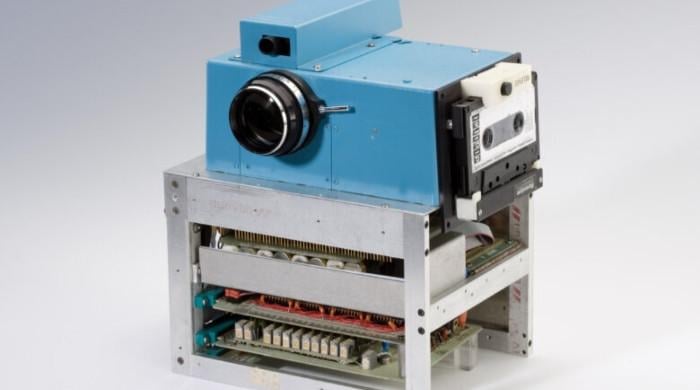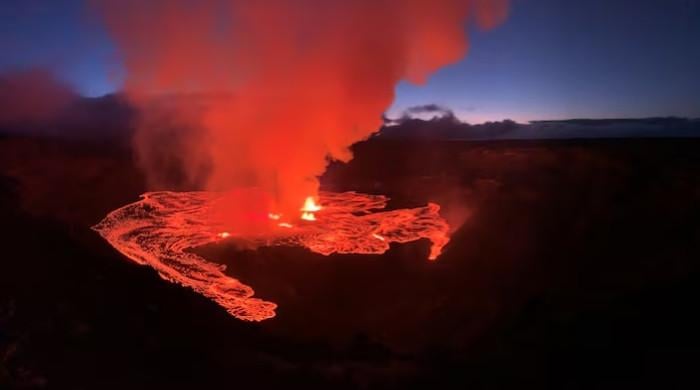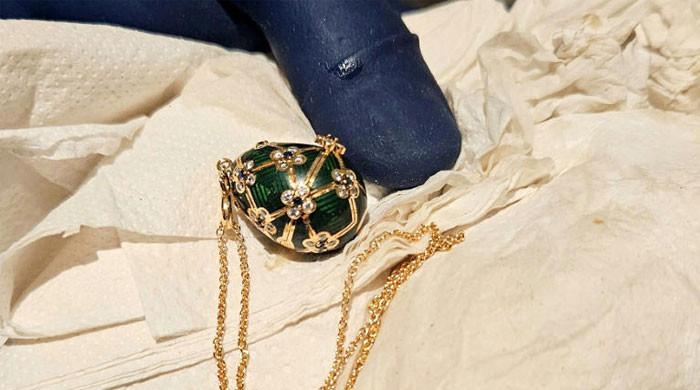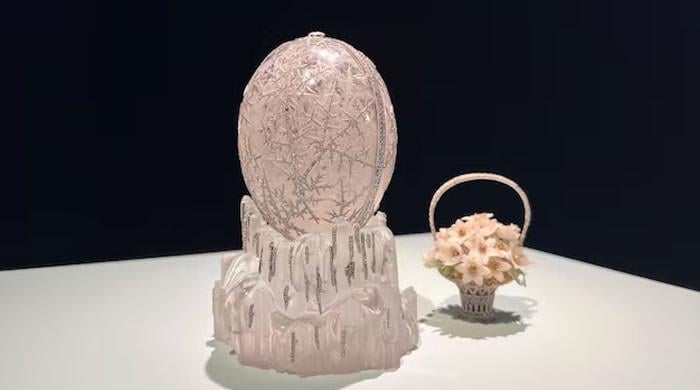Argentina's Grandmothers still searching 40 years on
The Grandmothers of the Plaza de Mayo believe that as many as 500 children were given up for adoption to relatives or associates of the regime
October 22, 2017
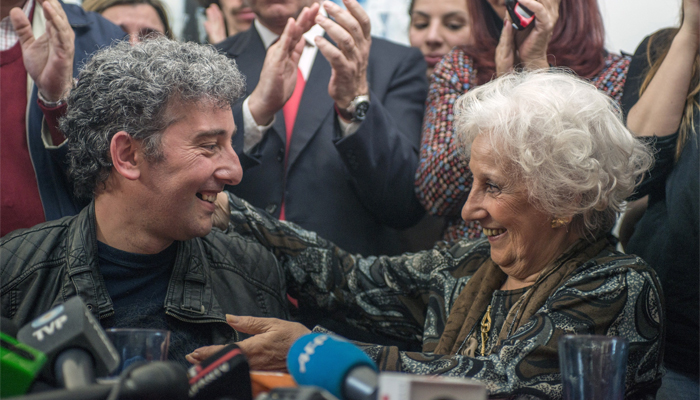
OLAVARRÍA: Argentina's campaigning Grandmothers mark their 40th anniversary Sunday vowing that age will not deter them from their struggle to identify hundreds of children stolen by the dictatorship and reunite them with their families.
Formed in October 1977, the Grandmothers of the Plaza de Mayo have so far identified 124 babies whose parents were killed by the 1976-1983 military junta and given new families and new identities.
"They were victims of tremendous violence during the dictatorship," Ignacio Montoya Carlotto — one of the symbols of the Grandmothers' struggle — told AFP.
"It was terrible, so sordid, to imprison opponents and to give away their children, to have them adopted illegally. Without their fight for the truth, we would never have known," Montoya Carlotto — the 114th recovered child — said.
The women — now aged in their 80s and over — lost either a son or a daughter to forced disappearances for opposing the military regime, and in many cases, their babies that were born in captivity.
They believe as many as 500 children were given up for adoption to relatives or associates of the regime. Their parents were among the 30,000 murdered by the junta.
'Guido'
For 36 years, Ignacio was called Ignacio Hurban before Argentina discovered the existence of "Guido", the name his mother had given him in jail before she was killed.
A pianist from Olavarria — a small town in the Argentine Pampa — he was catapulted into the limelight on August 5, 2014, when the "Grandmas" president Estela Carlotto had just found her own grandson.
Ignacio Hurban was suddenly bombarded with the name Guido and shown smiling in front of photographers and television cameras.
If it sounded like a fairytale ending to a tragic story, it was the beginning of a nightmare for Ignacio.
"They had been looking for me for 36 years. For me and other recovered grandchildren, it's different — there was no waiting. For the one being searched for, the story begins the day he is found. And that's a shock!"
"There were fantastic moments," after meeting his grandmother. "But for me, it was like an accident — which has a before and an after. A tragedy. I had to rethink my whole relationship with my adoptive parents."
He has, however, taken the name of his father, Montoya, and that of his mother, Carlotto.
The 39-year-old pianist decided to continue "living the quiet life" in Olavarria with his wife and their first child Lola, born a year ago. He continues to see his adoptive parents.
At the end of October, he will leave for a concert tour that will take him to the United States, Barcelona, Rome, and Paris. His story has been a boost to his career.
Since becoming a father, he said he has a better understanding of what led his grandmother and others like her to campaign on the Plaza de Mayo.
The Mothers of the Plaza de Mayo — a sister group — campaigns alongside the Grandmothers, who have set up a DNA bank with samples of their own DNA to ensure that anyone who suspects they are one of the missing children can come forward.
Gaping wound
The 124 recovered children have responded in various ways to their "dramatic" stories.
"Some have broken away from those who raised them, others like me continue to see their adoptive parents. Some have changed either their first or last name, or in some cases not."
Two embarked on careers in politics and became members of Argentina's Congress.
For Ignacio, there was no question of changing his name, rejecting the one Argentina gave him, "which was foreign to me."
"Guido is a character in a collective construction," he said.
His grandmother most often calls him "Pancho", the nickname given by his friends. He has learned to call her "Granny."
"What will become of this fight when the 'grandmothers' are no longer here?" he asked.
"Many have died without ever knowing their grandson or grand-daughter. The Grandmothers' fight must continue. Behind every baby, there is a gaping wound."




